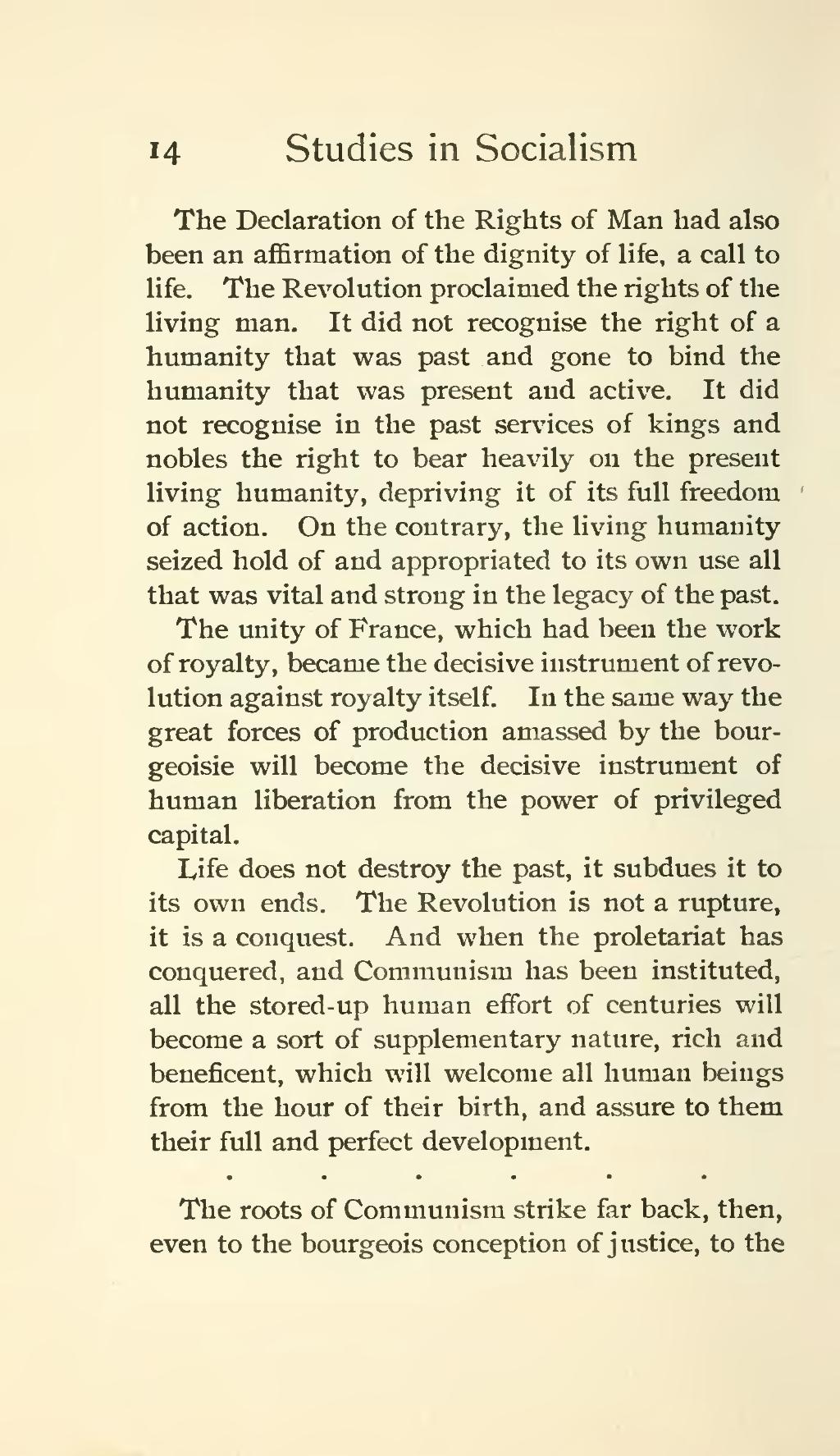The Declaration of the Rights of Man had also been an affirmation of the dignity of life, a call to life. The Revolution proclaimed the rights of the living man. It did not recognise the right of a humanity that was past and gone to bind the humanity that was present and active. It did not recognise in the past services of kings and nobles the right to bear heavily on the present living humanity, depriving it of its full freedom of action. On the contrary, the living humanity seized hold of and appropriated to its own use all that was vital and strong in the legacy of the past.
The unity of France, which had been the work of royalty, became the decisive instrument of revolution against royalty itself. In the same way the great forces of production amassed by the bourgeoisie will become the decisive instrument of human liberation from the power of privileged capital.
Life does not destroy the past, it subdues it to its own ends. The Revolution is not a rupture, it is a conquest. And when the proletariat has conquered, and Communism has been instituted, all the stored-up human effort of centuries will become a sort of supplementary nature, rich and beneficent, which will welcome all human beings from the hour of their birth, and assure to them their full and perfect development. ****** The roots of Communism strike far back, then, even to the bourgeois conception of justice, to the
